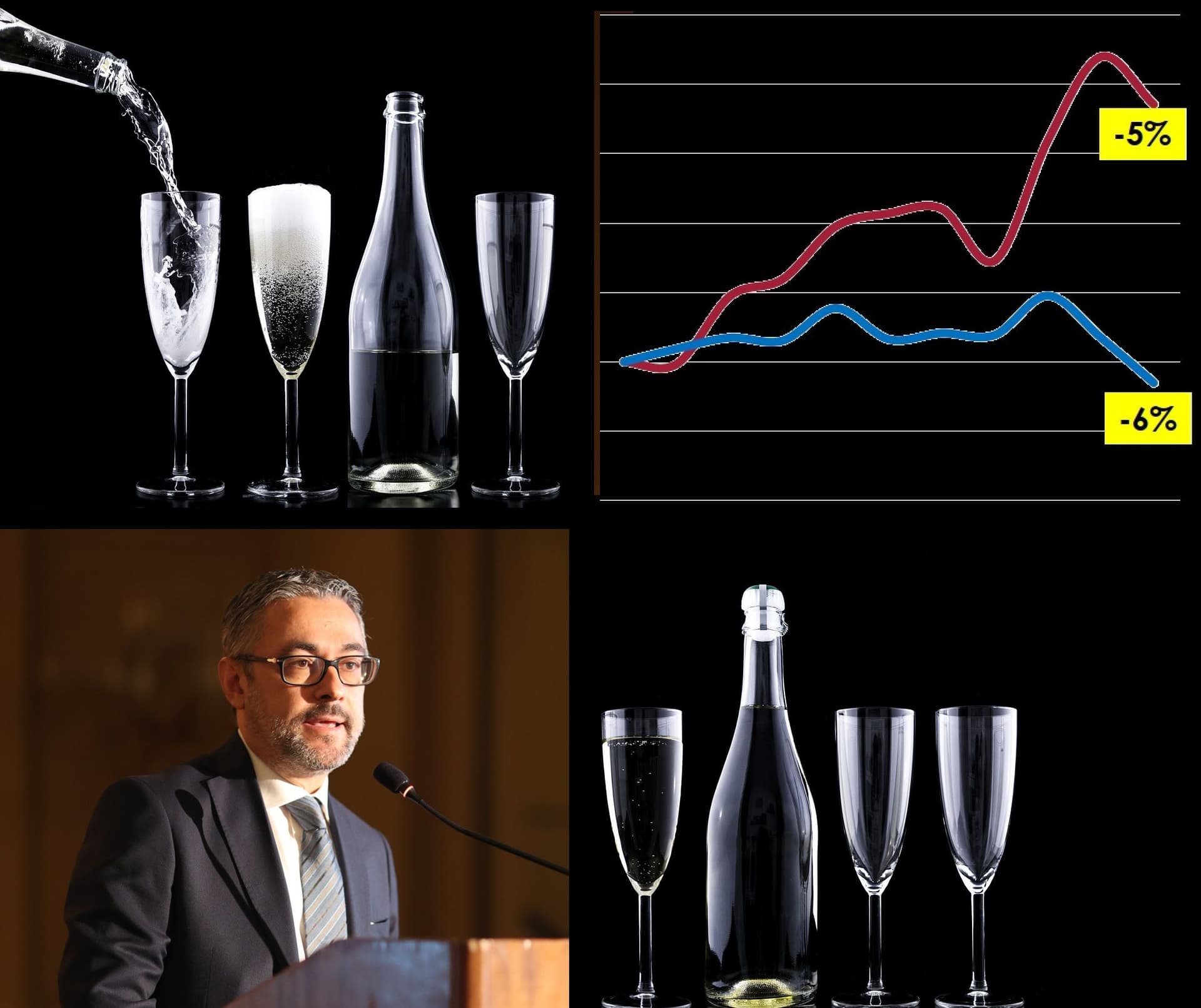«Vini green, healthy & good; new paths for a new generation of consumers»: during the conference organized by VCR on October 12 as part of “Le radici del vino”, Denis Pantini's analysis on a structural change in international demand and the indications of companies that continue to play a leading role in trade towards the far west and far east.
The import of wine is decreasing, and not by a small margin, in Germany, the United Kingdom, Japan, Switzerland, and France. The United States is also experiencing a slight decline, but only in terms of value. After a decrease in 2023, the international wine trade confirms the downward trend even in the first half of this year.
Nomisma's analysis
This is explained by Denis Pantini of Nomisma Wine Monitor in his report at the conference "Vini green, healthy & good; new paths for a new generation of consumers" organized by VCR, Vivai Cooperativi Rauscedo on Saturday, October 12th from 10:30 am at the Teatro Don Bosco in Rauscedo on the occasion of the 10th edition of the event "Le radici del vino".
Italy actually "performs better" than the market: sparkling wines (read Prosecco) are holding up while Champagne is sharply declining, and even in still wines, we are losing less than the world average, but there is no reason to be cheerful. In the domestic market, there are still signs of structural declines such as the ongoing crisis of red wines.
The international climate certainly does not encourage celebration, but crying over spilled "supertuscan" does not help understand what is happening in leading markets like those of English-speaking countries and the Far East. Where there are no conventional signs of crisis, but of a real change in consumption style driven by the expectations and preferences of the younger generations. At first glance, we are indeed facing another evolution of a "living" product like wine that cyclically changes its skin (from light white wines the color of paper to "drink and eat" red wines; from dry passitos to all-meal sparkling wines, to name just a few of the evolutions of recent decades).
The round table
Those who understand these trends will succeed, and during the event, we will discuss it with Mario Lanzarone from Callmewine (E-commerce, after the boom during the Covid period, the digital channel is targeting younger consumers and newcomers to wines and spirits, allowing to track the evolution of tastes); Carlo Piccinini, Cantina sociale Carpi Sorbara, president of Alleanza delle cooperative agroalimentari (The role of cooperation in reaching international markets); Marco Nannetti from Terre Cevico (The experience of the Italian wine reality with the greatest penetration in the Far East markets); Flavio Geretto, Villa Sandi (Evolution in English-speaking markets, the weight of new anti-alcohol taxes).
On the discussion table are some decisive themes:
- What is the attitude of Millennials and GenZ worldwide regarding dealcoholized wines?
- What are the chances of Piwi, wines from resistant varieties?
- Is there still a high focus on sustainability? Do organic, natural, or sustainable wines meet this demand?
- Is the appeal of territorial origin still strong? Or are there other trends not to be overlooked?
- Off-trade, on-trade, e-commerce: which channel to focus on?
The Rauscedo conference aims to explore in depth the new consumption styles dictated by the new generations, providing a detailed analysis of the ongoing changes and dynamics that are reshaping the global wine market, impacting as always on local consumption.
With the belief that in the face of crises and changes in our society, only those who prepare in advance will continue to succeed.
To participate, write to vcr@vivairauscedo.com
